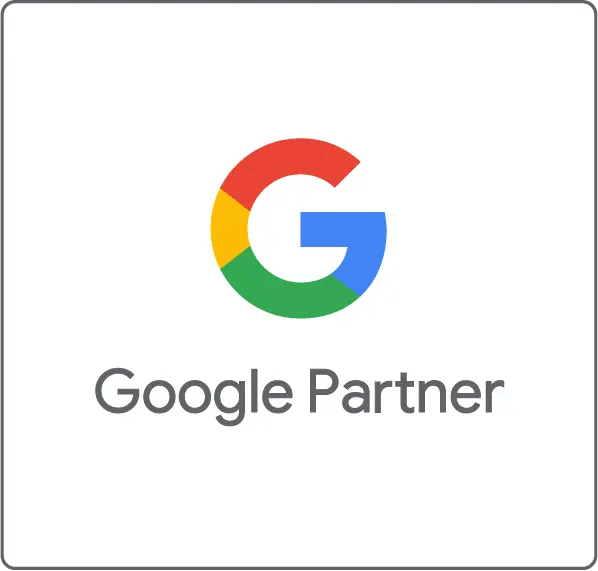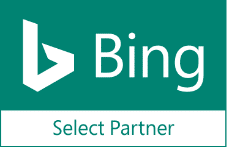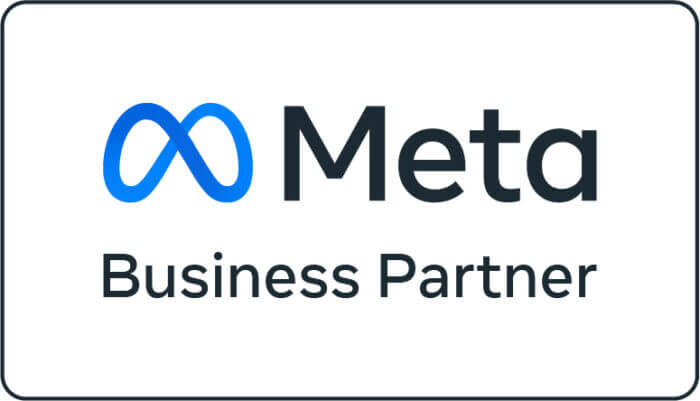
GET THE RESULTS YOU DESERVE FROM A TEAM SPECIALIZING IN DIGITAL MARKETING FOR E-COMMERCE BRANDS
How would it feel to partner with a digital marketing agency who helped an e-commerce company increase their revenue by 35x?
OUR DIGITAL MARKETING FOR E-COMMERCE APPROACH
Our approach to working with e-commerce clients starts with understanding your company’s business goals. These may include:
- MORE NEW CUSTOMERS
- INCREASING ORDERS
- HIGHER AVERAGE ORDER VALUE
- GROWING REVENUE
- AND MORE
Different goals require different approaches. Each client’s digital marketing strategy is customized to reflect those goals…and after working with many e-commerce clients during our 15+ years, we’ve also become experts at pivoting as your market and goals change.


Next, we work to understand what you have in place to achieve your goals: what do your current digital marketing efforts, sales and customer service teams, and fulfillment operations look like?
Understanding your current situation also includes a deep dive into your analytics, tracking, and conversion actions.
WHAT DO OUR E-COMMERCE CLIENTS THINK ABOUT OUR APPROACH?


And those clients aren't the exception. They're the rule. Our approach and our team mean we have an unheard of 81% client retention rate.
Digital Marketing Services for E-Commerce
Paid Media for E-commerce
Our e-commerce paid media plans use our understanding of your goals, your sales process, and your fulfillment operations, combined with e-commerce paid media considerations (low-volume keywords vs. broad or expensive keywords, for example) to develop a customized full-funnel strategy for your business.
Increased revenue 35x over 9 years while improving ROAS
Increased orders 160% year-over-year
Increased revenue 124% and grew new customers 84%
E-commerce Search Engine Optimization
Search engine optimization for e-commerce requires a deep understanding of not only how search engines crawl and index but also how potential buyers and influencers might be searching for products. Our SEO experts dive deep into keyword research and more to find higher and lower funnel opportunities to increase awareness, traffic, and conversions.
Interlinking strategy increased pageviews 100%
Grew organic revenue 171% post-holiday season
Increased monthly organic revenue by $320k in one quarter
Conversion Rate Optimization for E-commerce
E-commerce businesses come in many different types: some offer solutions to well-known problems, others to problems that potential customers don’t yet realize they have. When a potential customer comes to your website, it’s essential that it is easy to understand and navigate, in order to help them learn about your products and make a purchase.
What difference can conversion rate optimization make? Let’s dive in!
Increased orders 70% through mobile-first design
The results we drive for our clients are one of the many reasons we’re a Google Partner, Microsoft Advertising Select Partner, Meta Business Partner, and Google Analytics Certified Agency.



And our culture – where we actually live by our values, not just put them on the wall in the kitchen – is the reason we have an 82% employee retention rate.
This means your e-commerce account team will bring you deep experience and consistency.
Our team is also the reason we’ve been awarded the Top Workplace in Austin nine times (no other agency has won more than once).

Common vs. (un)Common Account Management
WANT TO LEARN MORE ABOUT HOW OUR E-COMMERCE DIGITAL MARKETING TEAM APPROACHES SERVING OUR E-COMMERCE CLIENTS? READ ON!
e commerce ppc agency
ppc agency for ecommerce
ecommerce ppc experts
ecommerce ppc agency
e-commerce ppc agency
ecommerce ppc management agency
ecommerce ppc company
ecommerce ppc company
ecommerce ppc agency
ecommerce ppc experts
e-commerce ppc agency
ecommerce ads consultant
ecommerce advertising consultant
ecommerce pay per click consultant
ecommerce digital marketing
ecommerce management consultant
ecommerce marketing consultant
ecommerce online advertising
ecommerce pay per click expert
ecommerce ppc expert
ecommerce strategy consultant
ecommerce consultant
ppc ecommerce
consultant ppc
ppc advertising consultant
pay per click consultant
ppc expert
web advertising consultant
ppc management consultant
ppc online advertising
search engine marketing consultant
READY FOR AN (UN)COMMON AGENCY EXPERIENCE?
Ecommerce PPC Consultants Frequently Asked Questions (FAQs)
Can you share ecommerce PPC case studies?
Yes! We have a comprehensive list of ecommerce PPC case studies:
PPC: 2 Year Diversification Strategy for E-Commerce
PPC: Strategic Testing & Channel Diversification Led to 160% Increase in Orders Year-Over-Year
CRO: Mobile-First Design Resulted in 70% Increase in Orders
PPC: Channel Optimizations Resulted in a 157% Increase in Revenue at a 147% Higher Return
PPC: E-Commerce Company Achieved its Highest Revenue Quarter in First 3 Months
PPC: Increased Revenue 124% while Growing New Customers 84%
PPC Social: Increased Facebook Revenue 3X at a Positive Return
PPC: Increased Revenue 137% and ROAS 102% for Ecommerce Company
PPC: Nine-Year Partnership Resulted in 35X Revenue Growth at More Efficient ROAS
PPC: Increased Shopping Revenue by $800K at a Stable ROAS
PPC: Improved ROAS Through Keyword Management
PPC: Grew Unique Users Through Display Frequency Cap Testing
What are the most popular ecommerce PPC metrics to report on?
Click-Through Rate (CTR)
- Measures the ratio of users who click on your ad to the number of total users who view the ad.
- Indicates how well your ads are attracting potential customers.
Cost Per Click (CPC)
- The amount you pay for each click on your ad.
- Helps in managing budget and determining the cost-effectiveness of your campaigns.
Conversion Rate (CVR)
- The percentage of clicks that result in a desired action (e.g., purchase, sign-up).
- Critical for understanding the effectiveness of your landing pages and overall campaign.
Cost Per Conversion (CPA)
- The average cost to acquire a customer through your PPC ad.
- Helps in evaluating the profitability of your PPC campaigns.
Return on Ad Spend (ROAS)
- Measures the revenue generated for every dollar spent on ads.
- A key metric to assess the overall efficiency and profitability of your PPC efforts.
Impressions
- The number of times your ad is shown.
- Useful for measuring brand awareness and reach.
Average Order Value (AOV)
- The average amount spent by customers per transaction.
- Helps in understanding customer purchasing behavior and optimizing for higher value sales.
Customer Acquisition Cost (CAC)
- The total cost to acquire a new customer, including all marketing and sales expenses.
- Important for evaluating the overall cost-effectiveness of your marketing efforts.
Lifetime Value (LTV)
- The projected revenue that a customer will generate during their lifetime.
- Helps in determining how much you can afford to spend on acquiring new customers.
What are ecommerce PPC consultants?
Ecommerce PPC consultants are professionals who specialize in managing and optimizing paid advertising campaigns for online retail businesses. They play a crucial role in helping online retailers achieve their digital marketing and sales objectives through well-managed and optimized paid advertising campaigns.
What are the benefits of working with a ecommerce PPC consultant?
Working with an e-commerce PPC (Pay-Per-Click) consultant can provide numerous benefits for your business. Here are some key advantages:
Expertise and Experience
- Specialized Knowledge: PPC consultants have in-depth knowledge of platforms like Google Ads, Bing Ads, and social media advertising. They stay updated with the latest trends and changes.
- Proven Strategies: Experienced consultants use tried-and-tested strategies tailored to e-commerce, helping you achieve better results.
Cost Efficiency
- Optimized Spend: Consultants can manage your budget efficiently, ensuring that every dollar spent yields the highest possible return on investment (ROI).
- Bid Management: They use advanced techniques to optimize bids, reducing costs while maintaining or improving ad performance.
Time Savings
- Focus on Core Business: By outsourcing PPC management, you can focus on other critical aspects of your business, like product development and customer service.
- Quick Implementation: Consultants can quickly set up and manage campaigns, speeding up the time to market.
Enhanced Performance
- Improved Ad Quality: Consultants can craft high-quality ads that attract more clicks and conversions.
- Data-Driven Decisions: They use analytics to continuously monitor and adjust campaigns for optimal performance.
Advanced Tools and Techniques
- Access to Tools: Consultants often have access to advanced PPC tools and software that may be expensive for individual businesses to acquire.
- A/B Testing: They perform rigorous testing to identify the best-performing ads and strategies.
Competitive Advantage
- Stay Ahead: A good consultant will keep you ahead of competitors by implementing the latest PPC innovations and best practices.
- Market Insights: They provide valuable insights into market trends and consumer behavior, helping you make informed decisions.
Reporting and Accountability
- Transparent Reporting: Consultants provide detailed reports on campaign performance, making it easy to track progress and ROI.
- Accountability: They are accountable for the results, ensuring a focused effort on achieving your business goals.
Scalability
- Growth Management: As your business grows, consultants can scale your PPC campaigns efficiently, ensuring continued success without overwhelming your internal resources.
What are some things not generally known about ecommerce PPC consultants?
Ecommerce PPC consultants often have a deep understanding of consumer psychology and behavior. They are skilled in interpreting data and recognizing patterns in consumer interactions with ads, which allows them to optimize campaigns for maximum effectiveness. Their expertise goes beyond just placing ads; they are adept at crafting persuasive ad copy and selecting images that resonate with target audiences.
Another lesser-known aspect is their proficiency with various analytical tools and software. Ecommerce PPC consultants regularly use advanced platforms like Google Analytics, SEMrush, and Ahrefs to track performance metrics and identify opportunities for improvement. This technical know-how enables them to make data-driven decisions that can significantly boost ROI for their clients.
These consultants are also strategic thinkers who can anticipate market trends and shifts in consumer preferences. They stay updated with the latest developments in digital marketing and ecommerce, ensuring that their strategies remain relevant and effective. This forward-thinking approach allows them to adapt quickly to changes in the market, keeping their clients ahead of the competition.
Finally, ecommerce PPC consultants often have strong project management skills. They juggle multiple campaigns simultaneously, coordinating with various stakeholders to ensure that all elements of a campaign align seamlessly. This requires excellent communication skills and the ability to manage time and resources effectively, ensuring that campaigns are delivered on schedule and within budget.
What are the most important questions that a company needs to ask when looking to hire a ecommerce PPC consultant?
When looking to hire an eCommerce PPC consultant, it’s crucial to ask the right questions to ensure they have the expertise and approach that aligns with your business goals. Here are some of the most important questions to consider:
– Can you provide examples of eCommerce clients you’ve worked with?
– What types of products or services have you successfully marketed through PPC?
– How long have you been managing PPC campaigns for eCommerce businesses?
– What is your approach to developing a PPC strategy for an eCommerce site?
– How do you conduct keyword research and selection?
– Can you explain your process for setting up and optimizing ad campaigns?
– What PPC management tools and platforms do you use?
– How do you stay updated with the latest PPC trends and platform changes?
– What key performance indicators (KPIs) do you focus on?
– How often will you provide performance reports and updates?
– Can you share a sample report from a past client?
– How do you determine and manage PPC budgets?
– What strategies do you use to maximize ROI on ad spend?
– How do you handle ongoing campaign optimization?
– What types of A/B tests do you conduct, and how do you implement the findings?
– How do you typically communicate with clients, and how often?
– Can you describe a successful collaboration with an eCommerce business?
– Can you share case studies or testimonials from previous eCommerce clients?
– What results have you achieved for similar businesses?
– How do you ensure compliance with advertising policies and regulations?
– What measures do you take to avoid click fraud and other unethical practices?
– What is your pricing model (e.g., hourly rate, retainer, performance-based)?
– What are the terms of your contract, and what happens if we decide to part ways?
What should you consider when selecting a ecommerce PPC consultant?
When selecting an eCommerce PPC consultant, consider their experience and expertise first. Look for someone with a proven track record of managing successful PPC campaigns specifically for eCommerce businesses. It’s essential they have experience with products or services similar to yours, as this ensures they understand the unique challenges and opportunities within your market.
Another critical factor is their strategic approach. Ask how they plan to develop and execute a PPC strategy tailored to your business goals. This includes their methods for keyword research, ad creation, and campaign optimization. A good consultant should have a clear, structured process and be able to explain it in detail.
Budget management is also crucial. You need a consultant who can effectively manage your PPC budget to maximize return on investment. They should be adept at allocating funds efficiently across different campaigns and platforms, ensuring that every dollar spent contributes to achieving your business objectives.
Communication is key in any business relationship. Ensure the consultant is someone who communicates clearly and regularly. They should provide frequent updates on campaign performance and be open to discussing any changes or concerns you might have. Effective communication helps in making quick adjustments to campaigns and staying aligned with your business goals.
Lastly, consider their fee structure and contract terms. Understand how they charge for their services—whether it’s an hourly rate, a retainer, or performance-based pricing. Make sure the terms are transparent and fair, and that you know what happens if the relationship ends. This clarity helps avoid misunderstandings and ensures a smooth collaboration.
Ecommerce PPC Consultant: What are some common problems you should know about when selecting one?
When selecting an eCommerce PPC consultant, being aware of common problems can help you avoid potential pitfalls. Here are some issues to be mindful of:
Lack of Industry-Specific Experience: Many consultants might have general PPC expertise but lack specific experience in eCommerce. This can lead to strategies that aren’t tailored to the unique needs of online retail, such as managing product feeds, optimizing for seasonal sales, or handling large inventories.
Overpromising Results: Be cautious of consultants who guarantee immediate, dramatic results. PPC campaigns often require time for testing and optimization. Unrealistic promises can indicate a lack of understanding or an attempt to win your business without a clear strategy.
Poor Communication: Effective communication is crucial for successful collaboration. Consultants who are unresponsive or fail to provide regular updates can create confusion and hinder the progress of your campaigns. Ensure your consultant has a clear communication plan and sticks to it.
Inadequate Reporting: Without detailed and transparent reporting, it’s challenging to understand the performance of your campaigns. Some consultants may provide reports that are too high-level or lack actionable insights. Make sure your consultant offers comprehensive, easy-to-understand reports.
Neglecting Mobile Optimization: With the significant shift towards mobile shopping, it’s critical that PPC campaigns are optimized for mobile devices. Consultants who overlook mobile optimization may miss out on a substantial portion of your potential audience.
Lack of A/B Testing: Continuous testing is essential for optimizing PPC campaigns. Consultants who do not implement A/B testing for ads, landing pages, and keywords might miss opportunities for improvement. Ensure your consultant prioritizes regular testing and experimentation.
Ignoring Audience Targeting: Effective audience targeting is key to successful PPC campaigns. Consultants who do not leverage advanced targeting options, such as demographic, geographic, and behavioral targeting, may fail to reach the most relevant audience for your products.
Budget Mismanagement: PPC advertising can be costly if not managed properly. Consultants who lack a strategic approach to budget allocation might overspend without delivering a corresponding return on investment. Look for a consultant who can demonstrate prudent budget management and ROI-focused strategies.
Lack of Transparency in Fees: Hidden fees or unclear pricing structures can lead to unexpected costs. Ensure the consultant provides a transparent breakdown of their fees and any additional costs associated with managing your PPC campaigns.
Non-compliance with Advertising Policies: Violations of advertising policies can result in account suspensions or bans. Make sure your consultant is well-versed in the policies of the platforms they’re using (e.g., Google Ads, Facebook Ads) and adheres to best practices to avoid any compliance issues.
Ecommerce PPC experts: Who would you consider competitors?
When doing a Google search, you can find multiple companies that are ecommerce PPC consultants. Webfx and Outerbox are two that show up.
What industries or niches are a best-fit to leverage (un)Common Logic as your expert ecommerce PPC consultant?
(Un)Common Logic, as an expert eCommerce PPC consultant, can cater to a variety of industries and niches that can benefit from their specialized skills and strategic approach. Here are some of the best-fit industries:
E-commerce Retailers: (Un)Common Logic can significantly enhance PPC campaigns for online retailers selling a wide range of products, from fashion and apparel to electronics and home goods. Their expertise in managing product feeds, optimizing shopping ads, and driving conversions can help e-commerce retailers maximize their ROI.
B2B E-commerce: For businesses selling products or services to other businesses online, (Un)Common Logic’s data-driven approach and experience with complex sales cycles can help in generating high-quality leads and improving the efficiency of PPC campaigns.
Consumer Goods: Companies selling consumer goods, such as beauty products, health supplements, and personal care items, can benefit from (Un)Common Logic’s ability to create compelling ad campaigns that resonate with target audiences and drive sales.
Subscription Services: Businesses offering subscription-based services, whether it’s for software, monthly boxes, or media streaming, can leverage (Un)Common Logic’s expertise to optimize customer acquisition costs and improve subscription retention rates through targeted PPC strategies.
Healthcare and Wellness: Healthcare providers, wellness brands, and medical device companies can benefit from (Un)Common Logic’s compliance knowledge and ability to navigate the highly regulated advertising landscape, ensuring effective and compliant PPC campaigns.
Education and E-Learning: Educational institutions and e-learning platforms can leverage (Un)Common Logic’s experience in promoting online courses, webinars, and educational resources through PPC campaigns designed to attract and convert students.
Financial Services: Financial institutions, insurance companies, and fintech startups can benefit from (Un)Common Logic’s expertise in targeting the right audience segments and creating ads that build trust and drive conversions in a competitive market.
Travel and Hospitality: The travel and hospitality industry can utilize (Un)Common Logic’s skills to promote destinations, accommodations, and travel packages, ensuring ads reach potential travelers at the right time and through the right channels.
Automotive: Car dealerships, auto parts retailers, and automotive service providers can take advantage of (Un)Common Logic’s ability to create targeted campaigns that drive both online and in-store traffic, leading to increased sales and service bookings.
Real Estate: Real estate agencies and property management companies can benefit from (Un)Common Logic’s strategic approach to generating high-quality leads, promoting property listings, and optimizing ad spend to attract potential buyers and renters.
By focusing on these industries, (Un)Common Logic can leverage its expertise to deliver exceptional PPC results, driving growth and maximizing ROI for their clients.
How long does it take to see results from working with a ecommerce PPC agency?
The timeline for seeing results from working with an eCommerce PPC agency can vary depending on several factors, but here’s a general outline of what you can expect:
Initial Setup and Strategy Development (1-2 Weeks):
- During this phase, the agency will conduct an in-depth analysis of your business, competitors, and target audience.
- They will develop a customized PPC strategy, including keyword research, ad creation, and account setup.
Campaign Launch and Initial Data Gathering (2-4 Weeks):
- Once the campaigns are live, the agency will start collecting data on performance metrics such as click-through rates (CTR), cost-per-click (CPC), and initial conversion rates.
- This period is crucial for understanding how the audience responds to the ads and identifying any immediate adjustments needed.
Optimization and Refinement (1-3 Months):
- Based on the initial data, the agency will begin optimizing the campaigns. This includes adjusting bids, refining keywords, testing different ad creatives, and improving landing pages.
- You can start seeing more consistent and positive trends in performance metrics during this phase, but it may take time to achieve significant improvements.
Consistent Performance and Scaling (3-6 Months):
- By this stage, the campaigns should be well-optimized, and you should see more stable and improved results in terms of conversions, sales, and ROI.
- The agency will continue to monitor and adjust the campaigns while exploring opportunities for scaling, such as increasing the budget, expanding to new platforms, or targeting additional audiences.
Long-term Growth and Adaptation (6+ Months):
- Over the long term, the agency will focus on sustaining and enhancing performance, adapting to market changes, seasonal trends, and new opportunities.
- Continuous testing and optimization will help maintain a competitive edge and drive ongoing growth.
It’s important to note that the specific timeline can vary based on factors such as the complexity of your campaigns, the competitiveness of your industry, the initial state of your PPC accounts, and the level of collaboration between your team and the agency. Regular communication and transparency with the agency will help ensure that expectations are aligned and that you are aware of progress and any challenges that may arise.
What prices do a PPC marketing agency charge for their services?
PPC marketing agency prices can vary widely based on several factors, including the scope of services, the size of the client’s ad spend, and the agency’s level of expertise.
Typically, agencies charge a monthly management fee Some PPC agencies also take a percentage of the ad spend, usually between 10% and 20%. Additionally, there might be setup fees or costs for additional services like landing page design, copywriting, or advanced analytics. Finally, there are custom pricing models are common, tailored to the specific needs and goals of the client.
What are effective yet underutilized PPC marketing strategies that e commerce business can leverage?
Our paid media services focus on daily account monitoring with frequent client communication allowing us to maximize ROI when the landscape changes. We make sure to target the right audience, adjust ad creative and ad copy, continuously test and focus on optimizing ad campaigns, while making sure that tracking is working properly. Other paid advertising agencies might focus on a set it and forget it approach with automation and that is not the best practice if you want to increase your ROI consistently and over a long period of time.
PPC Services: What are some do's and don'ts?
Do’s of PPC Services
1. Conduct Thorough Keyword Research: Proper keyword research is the foundation of any successful PPC campaign. Use tools like Google Keyword Planner, SEMrush, or Ahrefs to identify relevant keywords that potential customers are searching for. Focus on a mix of broad, exact, and long-tail keywords to capture different types of search intent. Continuously monitor and refine your keyword list based on performance data to ensure you’re targeting the most effective terms.
2. Create Compelling Ad Copy: Your ad copy should be clear, concise, and compelling. Highlight the unique selling points of your products or services, include a strong call to action, and ensure your ad copy aligns with the keywords you’re targeting. A/B test different versions of your ad copy to see which performs best and continuously optimize based on the results.
3. Use Negative Keywords: Negative keywords prevent your ads from showing up in irrelevant searches, saving your budget for more qualified clicks. Regularly review search term reports to identify and add negative keywords, ensuring your ads reach the right audience and improve your ROI.
4. Optimize Landing Pages: Ensure that the landing pages your ads lead to are relevant, high-quality, and optimized for conversions. A good landing page should load quickly, be mobile-friendly, and have clear calls to action. Continuously test different elements of your landing pages, such as headlines, images, and forms, to improve conversion rates.
5. Monitor and Analyze Performance: Regularly review your campaign performance metrics, such as click-through rates (CTR), conversion rates, cost per click (CPC), and return on ad spend (ROAS). Use this data to make informed decisions about optimizing your campaigns. Set up automated reports and alerts to stay on top of your PPC performance.
Don’ts of PPC Services
1. Don’t Set and Forget: PPC campaigns require continuous monitoring and optimization. Avoid the “set it and forget it” mindset, as market conditions, competitor actions, and consumer behavior can change quickly. Regularly review your campaigns and make adjustments to bids, keywords, and ad copy to maintain optimal performance.
2. Don’t Ignore Mobile Users: A significant portion of online traffic comes from mobile devices. Ensure your ads and landing pages are mobile-friendly to provide a seamless experience for mobile users. Ignoring mobile optimization can lead to missed opportunities and lower conversion rates.
3. Don’t Use Broad Match Keywords Exclusively: While broad match keywords can help capture a wide audience, they can also lead to a lot of irrelevant clicks. Relying solely on broad match can drain your budget quickly. Use a combination of match types and regularly review search query reports to refine your keyword strategy.
4. Don’t Overlook Ad Extensions: Ad extensions, such as site links, callouts, and structured snippets, can enhance your ads’ visibility and provide additional information to potential customers. Ignoring ad extensions can result in missed opportunities to improve your ad’s performance and user engagement.
5. Don’t Neglect Quality Score: Quality Score is a crucial factor in determining your ad rankings and CPC. Poor Quality Scores can result in higher costs and lower ad positions. Focus on improving your Quality Scores by ensuring your keywords, ad copy, and landing pages are highly relevant and provide a good user experience.
What are some common ecommerce PPC agencies strategies and why people still use them?
– Keyword Targeting and Bidding
Keyword targeting and bidding remain fundamental to PPC campaigns. Agencies conduct extensive research to identify the most relevant and high-performing keywords. By strategically bidding on these keywords, they ensure that ads appear in top positions on search engine results pages. This approach drives targeted traffic to e-commerce sites, as the ads reach potential customers who are actively searching for related products, thereby increasing the likelihood of conversions.
– Dynamic Search Ads (DSAs)
Dynamic Search Ads automatically generate ads based on the content of an e-commerce site, matching user searches to relevant products without needing specific keyword lists. This strategy is widely used because it can capture a broader audience by covering a wide range of search queries, including long-tail keywords that might not be part of a regular keyword list. DSAs help identify new keywords and scale campaigns effectively, making them a valuable tool for reaching potential customers.
– Product Listing Ads (PLAs) and Google Shopping
Product Listing Ads and Google Shopping campaigns display product images, prices, and store names directly in search results. Their visual appeal and detailed information attract clicks from users who are already in the buying mindset. This strategy leads to higher conversion rates due to the immediate presentation of product details, making it a staple for e-commerce PPC agencies looking to enhance visibility and drive sales.
– Ad Extensions
Ad extensions provide additional information with the ads, such as site links, call buttons, location information, and product ratings. They make ads more informative and engaging, improving click-through rates (CTR) and overall ad performance. Ad extensions offer users more reasons to click on the ads, enhancing their visibility and effectiveness, which is why they are widely used in e-commerce PPC strategies.
– Automated Bidding Strategies
Automated bidding strategies leverage machine learning to adjust bids based on the likelihood of conversion. These strategies save time and improve efficiency by optimizing bids in real-time, achieving better results than manual bidding. Automated bidding leads to higher conversion rates and improved campaign performance, making it an attractive option for e-commerce PPC agencies aiming for optimal results.
– Audience Targeting
Audience targeting involves creating specific audience segments based on demographics, interests, and past behaviors to show highly targeted ads. This strategy allows for more personalized and relevant ads, increasing engagement and conversion rates. By reaching the right people at the right time with the right message, audience targeting helps e-commerce businesses achieve better campaign outcomes.
– A/B Testing
A/B testing involves comparing two versions of an ad to determine which one performs better. This continuous optimization process ensures that the most effective ad copy, images, and strategies are used. Iterative testing leads to better performance and higher ROI, which is why A/B testing remains a common practice in e-commerce PPC campaigns.
– Mobile Optimization
With a significant portion of traffic coming from mobile devices, ensuring that ads and landing pages are optimized for mobile is crucial. Mobile optimization provides a seamless user experience, significantly impacting conversion rates. E-commerce PPC agencies prioritize mobile optimization to capture the growing mobile audience and drive more conversions.
How can your PPC specialist services be expanded in the future?
At (un)Common Logic we believe in testing out different traffic sources to determine what is the best ROI for your business. Usually we start with Google as a the first PPC traffic channel and after we have scaled with Google, we can then determine if Amazon, Microsoft Bing, Meta, TikTok are right for you based on industry, competitiveness, and other paid media insights.
PPC Consulting: What are the latest trends in the ecommerce PPC industry?
The ecommerce PPC consulting industry is constantly evolving. Here are some of the latest trends shaping the industry in 2024:
AI and Machine Learning: Advanced algorithms are being used to optimize bids, create dynamic ads, and predict customer behavior, enhancing the efficiency and effectiveness of PPC campaigns.
Automation: Increasing use of automation tools for bid management, ad creation, and performance tracking to save time and improve accuracy.
Video Ads: Growing popularity of video ads on platforms like YouTube and social media, driven by their higher engagement rates compared to traditional text or image ads.
Personalization: Tailoring ads to individual users based on their behavior, preferences, and demographics to improve relevance and conversion rates.
Privacy Regulations: Adjusting strategies to comply with stricter data privacy laws (like GDPR and CCPA), focusing on transparency and user consent.
Cross-Channel Campaigns: Coordinating PPC efforts across multiple channels (search engines, social media, display networks) to create a cohesive and comprehensive marketing strategy.
First-Party Data Utilization: Leveraging first-party data for more accurate targeting and personalization as third-party cookies are phased out.
What ecommerce marketing PPC tactics should you avoid if you want to keep your cost per lead low?
To keep your cost per lead low in ecommerce marketing PPC, it’s crucial to avoid certain tactics that can inflate costs without delivering commensurate returns. Here are key strategies to steer clear of:
Broad Match Keywords
Using broad match keywords can quickly drain your budget by displaying ads for irrelevant searches. These keywords cast too wide a net, attracting clicks from users who may not be interested in your product, leading to higher costs without corresponding conversions. Instead, use phrase match or exact match keywords to ensure your ads are shown to a more targeted audience.
Overbidding on Keywords
While it’s important to remain competitive in bidding, overbidding on popular keywords can result in a high cost per click (CPC) without necessarily improving your conversion rates. Conduct thorough keyword research to find a balance between cost and performance, and focus on long-tail keywords that are less competitive but highly relevant to your audience.
Ignoring Negative Keywords
Failing to use negative keywords can lead to your ads being displayed for irrelevant searches, which wastes budget on clicks that are unlikely to convert. Regularly update your negative keyword list to filter out terms that don’t align with your campaign goals, thereby improving the quality of your traffic.
Poor Ad Copy
Ad copy that is not compelling or relevant can lead to low click-through rates (CTR), which affects your ad’s quality score and increases costs. Ensure your ad copy is clear, concise, and highlights the unique selling points of your product. A/B testing different versions of your ad copy can also help identify what resonates best with your audience.
Inadequate Landing Pages
Driving traffic to poorly designed or irrelevant landing pages can result in high bounce rates and low conversion rates. Ensure your landing pages are optimized for conversions, with clear calls to action, relevant content, and fast load times. Align the messaging and design of your landing page with your ad to provide a seamless user experience.
Not Utilizing Ad Extensions
Neglecting ad extensions can limit the information potential customers see about your business, reducing the likelihood of clicks. Use ad extensions like site links, callouts, and structured snippets to provide additional context and increase the visibility and appeal of your ads.
Ignoring Mobile Optimization
With a significant portion of traffic coming from mobile devices, failing to optimize your ads and landing pages for mobile users can result in a poor user experience and lower conversion rates. Ensure your ads and website are mobile-friendly to capture and convert mobile traffic effectively.
Lack of Ongoing Optimization
A set-it-and-forget-it approach to PPC campaigns can lead to stagnant performance and higher costs. Continuously monitor and adjust your campaigns based on performance data. Regularly review and refine your keyword lists, ad copy, and bidding strategies to stay competitive and efficient.
How can social media be leveraged to drive ecommerce business growth?
Social media can be a powerful tool for driving ecommerce business growth by utilizing a multifaceted approach that incorporates content marketing, paid advertising, community engagement, and data-driven optimization. Firstly, creating and sharing engaging content is vital. High-quality, relevant posts that resonate with your target audience can significantly enhance brand visibility and customer loyalty. Product showcases, educational tutorials, and user-generated content can highlight the benefits of your products, making them more attractive to potential buyers.
Paid advertising on social media platforms offers a precise targeting mechanism that ensures your ads reach the right audience. Utilizing features like targeted ads and retargeting campaigns can increase your conversion rates by focusing on users who are more likely to make a purchase. Additionally, shoppable posts on platforms like Instagram and Facebook simplify the buying process, allowing users to purchase directly from your posts, which can drive sales.
Engaging with your community is another crucial aspect. Building a strong community involves actively responding to comments, messages, and user-generated content. Collaborating with influencers who align with your brand can amplify your reach and provide social proof, enhancing your brand’s credibility. Encouraging satisfied customers to share their positive experiences on social media can also build trust and influence potential buyers.
Running social media campaigns such as contests, giveaways, and seasonal promotions can generate excitement and increase engagement around your brand. Interactive content like polls, quizzes, and live Q&A sessions can further boost engagement and provide valuable insights into customer preferences. These activities not only increase your followers but also drive traffic to your ecommerce site.
Lastly, leveraging analytics and optimization is essential for maximizing the effectiveness of your social media strategy. Monitoring performance through social media analytics tools allows you to understand what works and what doesn’t, enabling you to refine your approach. Conducting A/B tests on different content types and posting times can help identify the most effective strategies. Additionally, collecting customer feedback from social media interactions can provide insights into areas for improvement and opportunities for new product development.
How does (un)Common Logic differentiate itself from other ecommerce experts?
At (un)Common Logic, we manage our clients’ paid media investments with meticulous care, treating it as our own money. We offer high-touch customer service with complete transparency and authenticity, responding quickly and honestly to client questions and concerns.
Unlike many agencies that rely heavily on automation, often at the client’s expense, we focus on detailed work such as in-depth analysis, granular bid management, and consistent reporting. This approach allows us to reallocate thousands of client dollars from non-converting traffic to more profitable traffic.
We strategically use technology and software (CMS, CRM, tracking integration) to benefit our clients’ bottom line, not just our own. By combining human expertise with the right level of automation, we deliver exceptional performance that delights our clients.
Ecommerce SEO consulting: Do I need it if I have a ecommerce PPC consultant?
Even if you have an ecommerce PPC consultant, ecommerce SEO consulting is essential for long-term success. While PPC generates immediate traffic and sales, it requires continuous investment. SEO, on the other hand, improves organic search rankings, leading to sustainable, free traffic over time. SEO also enhances user experience through site optimization, which benefits conversion rates and customer satisfaction. Additionally, integrating SEO and PPC strategies can provide valuable insights and create a comprehensive marketing approach. Diversifying traffic sources with SEO reduces dependency on paid ads and builds brand authority and trust. Therefore, combining SEO with PPC ensures a balanced, cost-effective strategy for long-term growth.
What do people like the most when they work with us and not with other ecommerce PPC Agencies?
There are many different things that people love about working with (un)Common Logic.
- We provide actionable insights, not just data.
- We communicate when things go well and when things could be better (with a proper plan of course).
- We have a 81% client retention rate.
- We are a Google Premier Partner (Top 3% of Agencies Worldwide).
- 10x Top Workplaces Winner.
- We have countless case studies, see below:



